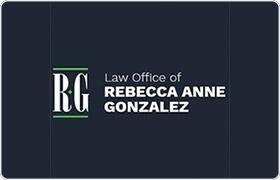 Spring Branch Family Law Lawyers, Texas
Spring Branch Family Law Lawyers, Texas
Sponsored Law Firm
-
 x
x

Click For More Info:
-
Law Office of Rebecca Anne Gonzalez
10101 Reunion Place Suite 615 San Antonio, TX 78216» view mapDivorce & Family Law Continuing The Gonzalez Legacy
At the Law Office of Rebecca Anne Gonzalez, my goal is to make certain you feel taken care of. My team and I work hard to protect what is important to you.
800-735-1530
Includes: Collaborative Law, Domestic Violence & Neglect, Paternity, Prenuptial Agreements
Lawyers
1-10 of 42 matches
Commercial Real Estate, Family Law, Elder Law, Credit & Debt
Bankruptcy, Business, Family Law, Estate Planning, International Other
Consumer Bankruptcy, Business & Trade, Criminal, Family Law, Wills
Litigation, Family Law, Business & Trade, Credit & Debt
Civil & Human Rights, Divorce & Family Law, Dispute Resolution, Family Law
Personal Injury, Divorce & Family Law, Litigation, Family Law
Elder Law, Criminal, Family Law, Wills, Dispute Resolution



 Rebecca Gonzalez San Antonio, TX
Rebecca Gonzalez San Antonio, TX Practice AreasExpertise
Practice AreasExpertise